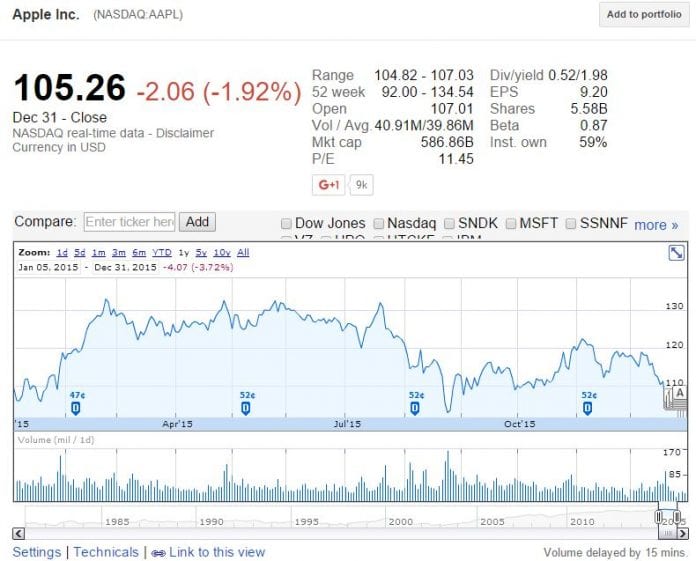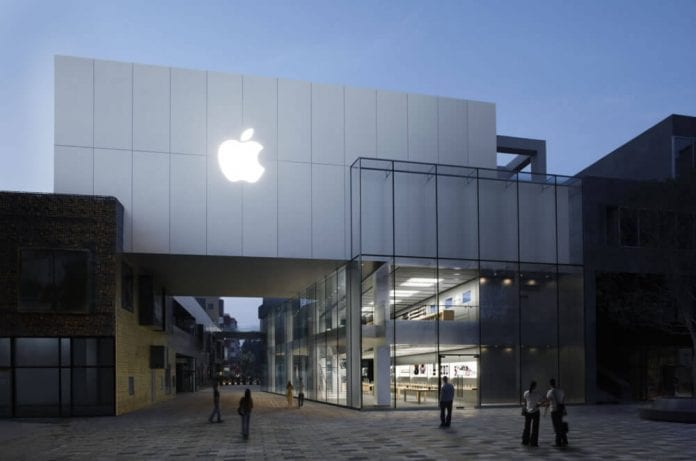Apple Inc. (NASDAQ:AAPL) ended 2015 with a negative performance—the shares of the company closed $105.26 per share, down by 1.92% on December 31. The stock dropped for the fourth time in five days las week, its worst performance and the first time for the company to end the year on the red since 2008.
The tech giant lost 3.72 % of stock value last year after its shares declined from its highest trading price of $134.54 per share (over the past 52 weeks) to its closing price by year-end. In 2014, Apple’s shares ended the year with a +40% return.

The company’s stock trimmed around 20% of its value since reaching the $134.54 a share on April 28. Its stock value was also 17.5% down since its inclusion in the Down Jones Industrial Average (DJIA) in March.
Apple’s impact on S&P 500
Apple is the largest company in the United States in terms of market capitalization. The declines in the company’s stock price reduced its market capitalization by around $60 billion this year. Currently, the tech giant has a market value of approximately $586.86 billion.
The S&P 500 ended the year down by 0.07%, ending its three years of double-digit gains. The index was primarily impacted by the negative performance of Apple’s shares. The index should have been up by around 0.31% excluding Apple, according to Howard Silverblatt, a senior analyst at S&P Dow Jones Indices.
Apple 2016 outlook
An article published on Seeking Alpha suggested that 2016 will probably bearish for Apple citing the reason that the company’s new iPhone shipments continue to decline. In addition, the company’s other products such as the Apple Watch and Apple Pay “lack broad adoption.”
Apple generates more than 50%o of its sales from a single product category—the iPhone. The product is highly commoditized and it is facing higher comps and consumer expectations annually.
In addition, the iPhone adoption is facing a new challenge as carriers in North America are shifting their smartphone distribution model to equipment installment plan. The four major carriers in the U.S. are promoting the equipment installment plan, which is a fundamental headwind for iPhone adoption because it pushes out the smartphone upgrade cycle beyond two years when customers become qualified for a discount on their monthly bills after paying off their device, according to the article.
Apple could dominate the connected home market
On the other hand, Apple and Alphabet (NASDAQ:GOOGL) (NASDAQ:GOOG), the parent company of Google could dominate the connected home market this 2016.
Shahid Ahmed, practice leader of emerging technology and Internet of Things (IoT) said the “Clearly, Apple and its HomeKit is an interesting development” although the IoT market is crowded. He also indicated that Alphabet is also a strong competitor in the market as Google owns Nest, which makes smart thermostat and smoke detectors.









